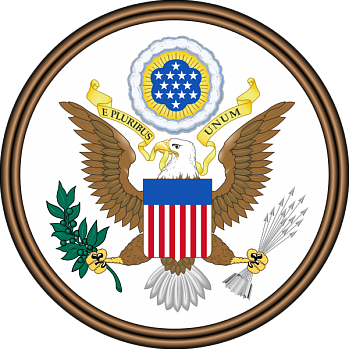 United States of America
United States of America
Comment by the official representative of the Ministry of Foreign Affairs of Russia, Alexander Lukashevich, regarding cancellation of the United States observation flight over Russian territory
The cancellation of the United States observation flight over Russian territory within the framework of the Treaty on Open Skies, which was scheduled for the 14-16 April and was cancelled by Russia, became a cause for speculations in the US mass media. With reference to "information leaks" in official circles, some commentators affirmed that the decision was made because we are allegedly preparing for action in Ukraine and do not want to provide the United States with the possibility to observe such preparations. To be noted, they also accuse us of violation of the Treaty: they say that observation missions within its framework can be cancelled exclusively for flight security reasons – for example, because of bad weather. The weather was good on those days and therefore, there were generally no flight security problems.
It is an easy job to dispose of these quasi-arguments. First of all, let us call to mind that according to Paragraph 2 of Section I of Article VIII of the Treaty on Open Skies "the observed Party shall have the right to prohibit an observation flight prior to its commencement in the event that the observing Party fails to arrive at the point of entry within 24 hours after the estimated time of arrival..., unless otherwise agreed between the Parties of the States involved". This is important since on the 14 April the joint US-Czech Republic mission was unable to arrive at the point of entry of Kubinsk at the announced time (16:00 Moscow time). At the request of the United States, the mission was allowed to postpone its arrival time by 24 hours, however the Americans and the Czechs did not arrive within the new deadline either. When they made another request to postpone this deadline, we refused with good reason, taking into consideration, in particular, certain financial costs inflicted on Russia, whilst waiting for the US observation aircraft. These costs are primarily related to the involvement of our forces and means in the practical supplying of the mission to be accepted.
The practice of implementation of this Treaty records many cases, when member states have made concessions in difficult situations.
We have nothing to hide: a new mission of the two above mentioned countries over the territory of the Russian Federation is starting today. If everything goes according to plan, our US and Czech colleagues will have sufficient possibility to obtain assurance that there is no concentration of Russian forces on the border with Ukraine.
But we also have a question – what about the good will of the United States? Unfortunately, we have to state that for a long time the United States (the only party to the OST) have been taking an extremely non-constructive position with regard to the certification of Russian digital observation equipment, setting requirements, which are not envisaged by the Treaty.
Still, we would like to hope that implementation of this Treaty will be free of any volatile negative influence, but that its parties will be strictly committed to their obligations.
21 April 2014




